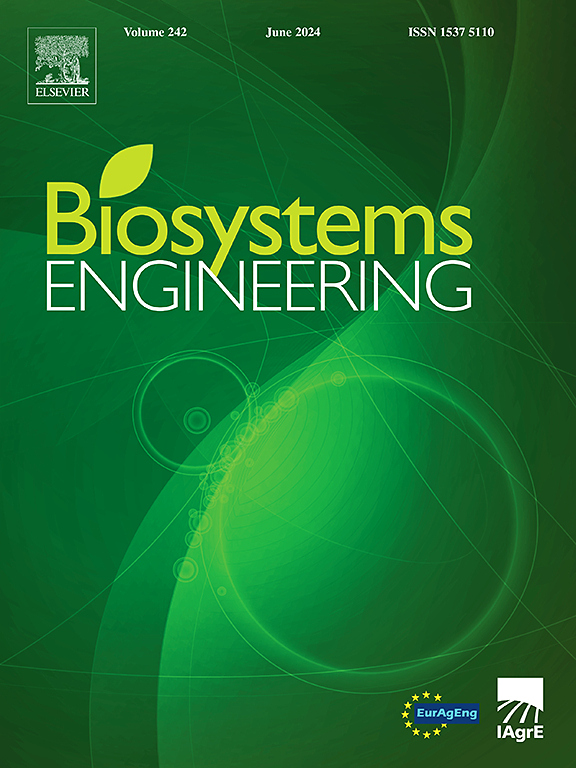Numerical and experimental study on the performance of a stabilising turbine inside a seed distribution device
Abstract
A design was proposed for a seed turbine installed within the distribution device to reduce the influence of surface slope variations on the uniformity of seeding mass at each row. Through a comparative analysis based on the computational fluid dynamics (CFD) 6 degrees of freedom (DOF) dynamic mesh model simulation and the bench test, the influence of five different stabilising turbines on airflow distribution performance was investigated. The type Ⅰ stabilising turbine, characterised by acute inlet and outlet angles, exhibited a smaller vortex region at the blade inlet and improved the conveying and mixing performance of the seed. A CFD 6DOF simulation experiment was conducted to investigate the influence of the type I stabilising turbine on the airflow field distribution. As the number of blades increased from 4 to 10, the stability and uniformity of the conveying airflow distribution were enhanced at the turbine outlet. Simulations using a comprehensive performance test platform of the planter evaluated the influence of stabilising turbines with different numbers of blades on uniformity during field operations at varying surface slopes. When the angles of the front-rear and lateral one-way oscillation combination, and the front-rear and lateral reciprocating oscillation combination varied within the range of −5°–5°, the stabilising turbine with 8 blades exhibited the smallest uniformity coefficient of variation of the seeding mass at each row. The values ranged from 4.1 % to 5.8 % for rapeseeds and from 3.8 % to 5.0 % for wheat seeds.

 求助内容:
求助内容: 应助结果提醒方式:
应助结果提醒方式:


